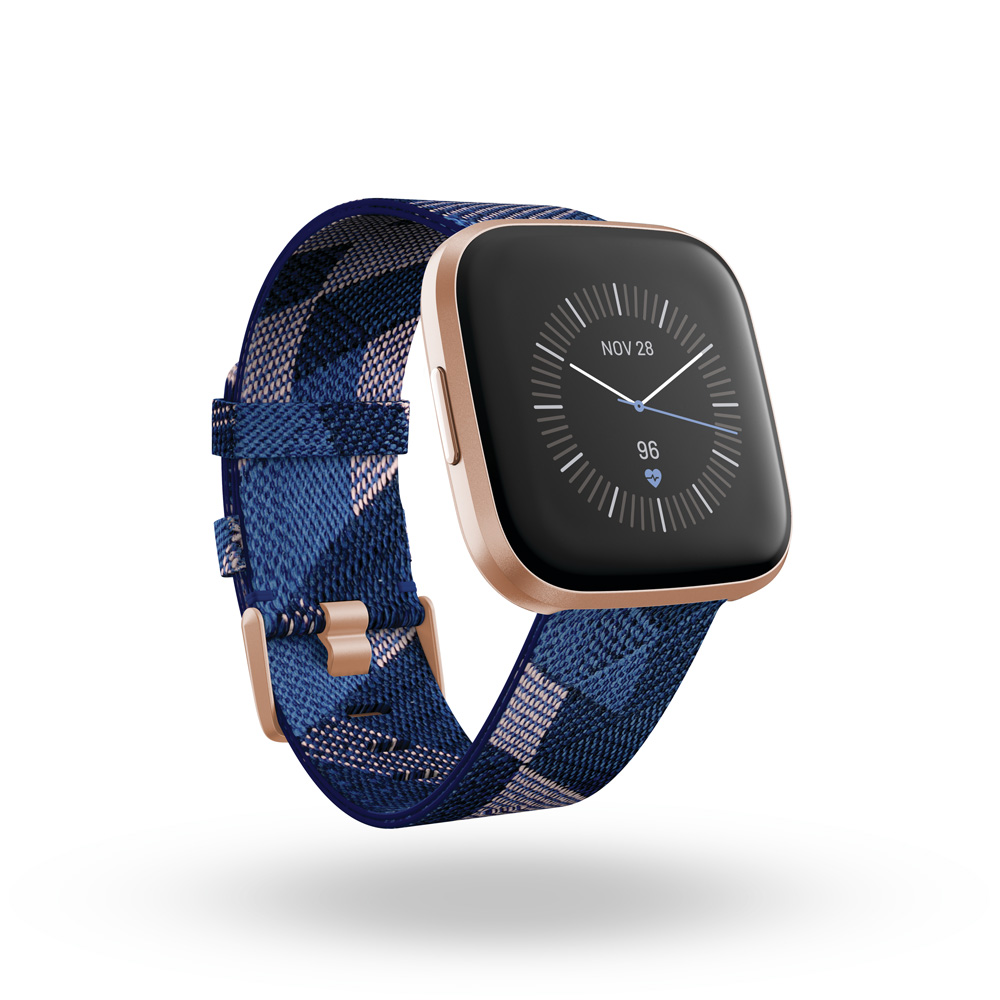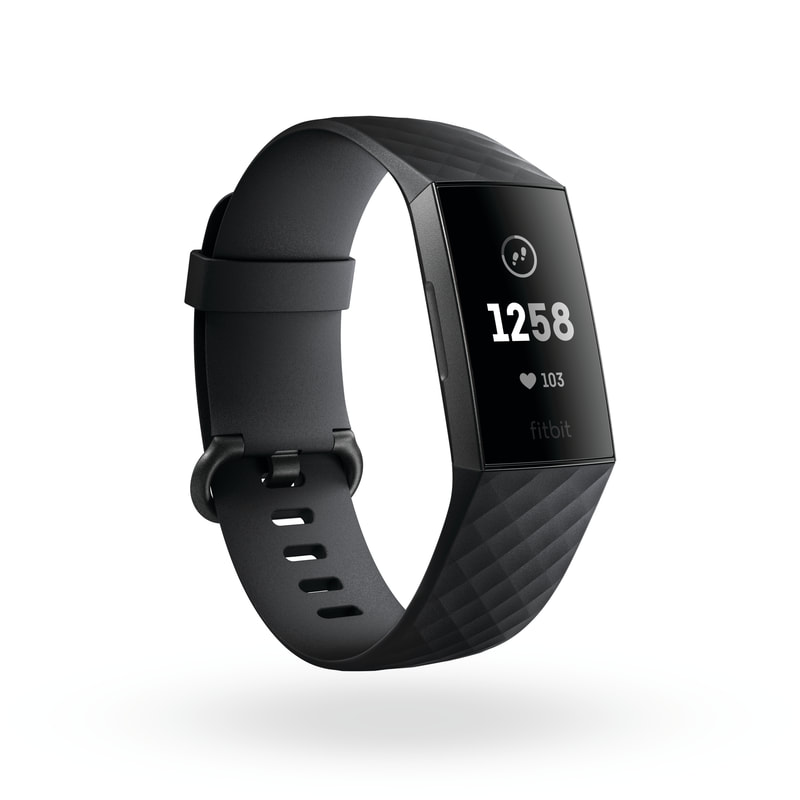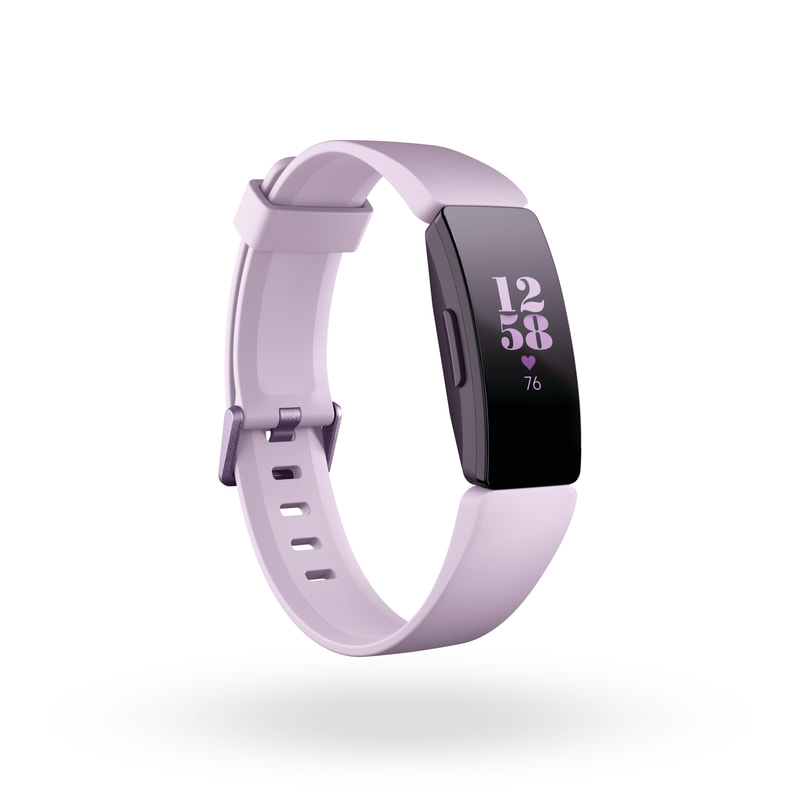| Fitbit is the perfect fitness tracker and smartwatch to help improve your health with its reliable heart rate tracking system. With World Heart Day just around the corner on 29th September, now is the perfect time to start taking better care of your health. According to Harley Pasternak, a famous fitness and nutrition specialist who works with Hollywood celebrities like Adam Levine, Lady Gaga, Ariana Grande and Charlie Puth, heart rate (HR) is indicative of fitness level, exercise intensity, and a variety of potential health issues[1]. Similarly, Harvard Health published an article explaining that heart rhythm and pace are connected to the heart's function that circulates oxygen and nutrient-rich blood throughout the body[2]. The normal heart’s function should work steadily and properly. However, if there is something wrong with your body, cardiac output will directly process the signal to heart rate and stroke volume, making your heart rate one of the most important health monitors to understanding your physical problems. Heart Rate Measurements There are 2 important measurements for your heart rate: Resting heart rate and Maximum heart rate[3]. Both measurements can diagnose your physical and emotional health. Resting heart rate is the heart pumping the lowest amount to supply enough oxygen for your body's needs. The resting heart rate can be measured when you are calmly lying down and doing nothing. The average resting heart rate ranges from 60 to 100 beats per minute, varying from person to person. There is no ideal resting heart, but some medical researchers believe that people who constantly have high resting heart rate might be diagnosed with a cardiovascular disease[4]. |
A slow heart rate can be an indication of:
Maximum heart rate is the heart pumping the highest amount to supply the oxygen your body's needs. Your maximum heart rate dictates your aerobic capacity – the highest amount of oxygen consumed during maximal exercise. Therefore, people who have a high maximum heart rate strongly have a high aerobic capacity. Moreover, there are many observational studies demonstrating that, with a high aerobic capacity, you can lower the risk of a heart attack. You can estimate your maximum heart rate by subtracting your age from 220 to get an age-predicted maximum heart rate (the simplest calculation). For example, if you are 27 years old, your maximum heart rate would approximately be 220 - 27 = 193.
- Being physically fit
- Being on a medication, such as propranolol to treat heart problems, help with anxiety and prevent migraines, or metoprolol to treat high blood pressure, heart attack, and heart failure.
- Being asleep (the heart rate may rise during the REM stage of sleep because most people dream at the stage).
- Risk of heart attack or other heart disease
- Certain infections (including Lyme disease or typhoid fever)
- High levels of potassium in the blood (hyperkalemia)
- An underactive thyroid gland.
Maximum heart rate is the heart pumping the highest amount to supply the oxygen your body's needs. Your maximum heart rate dictates your aerobic capacity – the highest amount of oxygen consumed during maximal exercise. Therefore, people who have a high maximum heart rate strongly have a high aerobic capacity. Moreover, there are many observational studies demonstrating that, with a high aerobic capacity, you can lower the risk of a heart attack. You can estimate your maximum heart rate by subtracting your age from 220 to get an age-predicted maximum heart rate (the simplest calculation). For example, if you are 27 years old, your maximum heart rate would approximately be 220 - 27 = 193.
A fast heart rate will show when you are moving or experiencing extremes such as:
Some negatives associated with a fast heart rate include:
Best way to track your heart rate
The traditional way to track your heart rate has been feeling your pulse and using the clock to calculate the heart rate. But with fitness trackers and smartwatches, such as the well-known Fitbit Charge 3, brand-new Fitbit Versa 2, or the sleek Fitbit Inspire HR, you can now have easy access to crucial tools to help you accurately track your heart rate. Fitbit’s PurePulse technology can provide you with heart rate insights 24/7, day and night to better track calorie burn, optimize workouts, uncover health trends and even manage stress with guided breathing sessions. Moreover, Fitbit can also use your heart rate to monitor your sleep patterns and quality, and show you a detailed record and score of the different sleep stages you cycle through each night. So, if you want to improve your overall health, it is crucial to be aware of your heart health – and the best way to do that is by using proven fitness trackers or smartwatches with a reliable heart rate tracking system. Your heart is key to your overall health and wellness so take the next step to know your body better.
- Exercising, especially if it is rigorous or associated with dehydration
- Nervousness or excitement
- Using a stimulant such as caffeine or;
- Pregnancy.
Some negatives associated with a fast heart rate include:
- Most infections or just about any cause of fever
- Problems such as cardiomyopathy (where the pumping function of the heart is reduced), atrial fibrillation, or ventricular tachycardia
- Low levels of potassium in the blood (hypokalemia)
- An overactive thyroid gland or too much thyroid medication
- Anemia
- Asthma or other breathing problems.
Best way to track your heart rate
The traditional way to track your heart rate has been feeling your pulse and using the clock to calculate the heart rate. But with fitness trackers and smartwatches, such as the well-known Fitbit Charge 3, brand-new Fitbit Versa 2, or the sleek Fitbit Inspire HR, you can now have easy access to crucial tools to help you accurately track your heart rate. Fitbit’s PurePulse technology can provide you with heart rate insights 24/7, day and night to better track calorie burn, optimize workouts, uncover health trends and even manage stress with guided breathing sessions. Moreover, Fitbit can also use your heart rate to monitor your sleep patterns and quality, and show you a detailed record and score of the different sleep stages you cycle through each night. So, if you want to improve your overall health, it is crucial to be aware of your heart health – and the best way to do that is by using proven fitness trackers or smartwatches with a reliable heart rate tracking system. Your heart is key to your overall health and wellness so take the next step to know your body better.
[1] 6 Things Your Resting Heart Rate Can Tell You About Your Health (Pasternak, 2017): https://blog.fitbit.com/resting-heart-rate/
[2] How’s your heart rate and why it matters? (Shmerling, 2017): https://www.health.harvard.edu/heart-health/hows-your-heart-rate-and-why-it-matters
[3] How to measure your heart rate for fitness and health (Capritto, 2019): https://www.cnet.com/how-to/how-to-measure-your-heart-rate/
[4] What your heart rate is telling you (Harvard Health Publishing, 2018): https://www.health.harvard.edu/heart-health/what-your-heart-rate-is-telling-you
[2] How’s your heart rate and why it matters? (Shmerling, 2017): https://www.health.harvard.edu/heart-health/hows-your-heart-rate-and-why-it-matters
[3] How to measure your heart rate for fitness and health (Capritto, 2019): https://www.cnet.com/how-to/how-to-measure-your-heart-rate/
[4] What your heart rate is telling you (Harvard Health Publishing, 2018): https://www.health.harvard.edu/heart-health/what-your-heart-rate-is-telling-you























